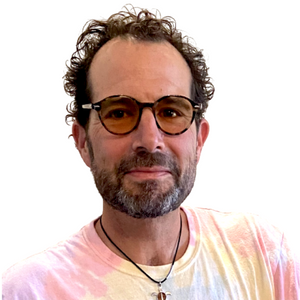Why having a growth hypothesis is critical to a brand's successWhy having a growth hypothesis is critical to a brand's success
The second of the 10 traits of a Tardigrade brand is having a well-formed growth hypothesis.

Let’s continue our deeper investigation into the critical characteristics of a Tardigrade brand. The second of the 10 traits is that Tardigrade brands have a well-formed growth hypothesis.
What is a growth hypothesis? I will start with what it is not. It is not static, it is not revenue-centric and it is not merely a financial plan. Instead, it is a living, breathing document that is testable and measurable. It is constructed from the bottom up and identifies key revenue drivers with the associated contra-revenue. It also defines the key “investments” elements needed to deliver the hypothesized revenue. Investment elements include selling expenses, marketing, logistics, acquisition, general and administrative costs and more. Aligned with the arc of growth is the corresponding capital needs of the business, including both the required working and growth capital. Lastly, and most importantly, it consists of the key underlying assumptions that will deliver the anticipated growth. The assumptions run the gambit of the business, from revenue sources, velocity, pricing, COGS, cash flow and tons of other factors.
The objective of a growth hypothesis is to take the assumptions to the market for validation. Getting back to the living, breathing aspect I mentioned earlier, the assumptions are adjusted based on the feedback and insight from the market. This means a growth hypothesis becomes “smarter” as time passes. In what will be the topic of the next article, this process goes hand-in-hand with growth hacking.
Instead of spending the balance of this article on the mechanics of a growth hypothesis, I want to focus on why having one is vital to building a Tardigrade brand.
Too often, founders start with conclusions, not assumptions. The former is a set of beliefs, while the latter are fundamental questions to be answered. On the surface, that sounds like a nuanced difference, but in practice, it is a huge change in mindset and action.
Conclusions are expectations. If you expect something to happen, that usually means you wait until it doesn’t before you find out something is wrong. For an early stage business, that is very risky.
Whereas with assumptions, you’re questioning. You aren’t going to wait until it is too late. You’ll constantly be looking for answers. That provides you the chance to adjust, change course, adapt. This increases nimbleness and resilience.
Another important aspect of a growth hypothesis is the vision it creates. When you plot out the arc of growth of the business and all the corresponding expenses and capital needs, you have a much broader field of view. This allows you to identify those brick walls and cliffs that are part of the entrepreneurial journey. Don’t get me wrong. It won’t eliminate them. It’s just part of the ride. But seeing them before you are on top of them allows you to be proactive rather than reactive. The latter is where so many costly mistakes are made, while the former is where the few leapfrog the many.
I’ve written other articles that go into the details of how to construct a growth hypothesis. I wanted to use this time to encourage you to prioritize developing a well-formed growth hypothesis that is testable and measurable. Here is one that you might find helpful. One that helps you ask the important questions and provides you with the field of vision to see the obstacles that may lie ahead.
Elliot Begoun is the Principal of The Intertwine Group, a practice focused on helping emerging food and beverage brands grow.
Have some big ideas or thoughts to share related to the natural products industry? We’d love to hear and publish your opinions in the newhope.com IdeaXchange. Check out our submission guidelines.
About the Author
You May Also Like





